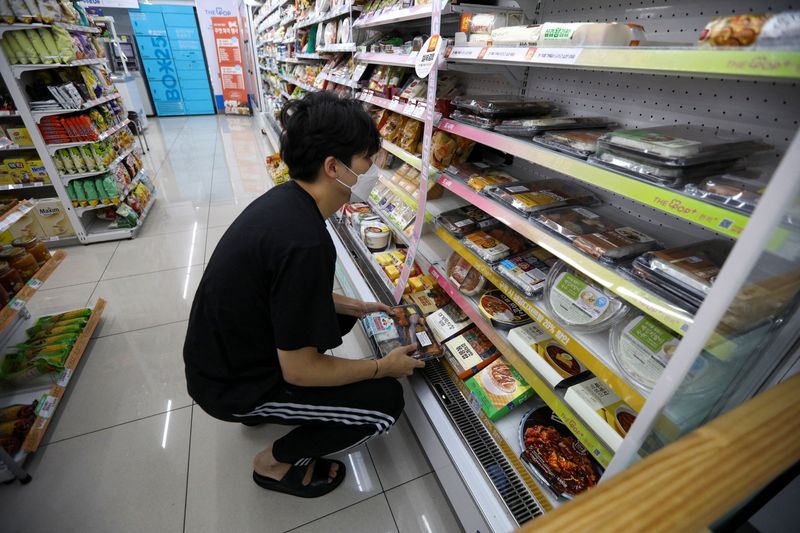By Jihoon Lee
SEOUL (Reuters) - South Korean consumer inflation ticked up in January to a three-month high but, driven mostly by temporary effects, left investors still confident that the central bank had ended its cycle of interest rate rises.
The consumer price index was 5.2% higher in January than in the same month a year before, rising faster than the 5.0% rate seen in December, Statistics Korea data showed on Thursday. Economists had expected the pace of growth to stay steady at 5.0%.
The index was 0.8% higher than in December, when the monthly rise was 0.2%. A 0.5% increase from December was tipped in a Reuters poll. The data is not seasonally adjusted.
The annual rate of price rises was the highest since October, when it was 5.7%.
Temporary effects that had pushed up inflation included a lift in electricity charges, unfavourable weather for vegetables and a strong round of regular annual price rises, the Finance Ministry said in a statement.
Ahn Jae-kyun, fixed-income analyst at Shinhan Securities said that, while January inflation was higher than expected, it was not "totally out of the expectation path."
"January's data is unlikely to provide grounds for additional rate hikes," said Ahn, who, like most economists, believes the Bank of Korea's monetary tightening cycle ended last month.
Investors shrugged off the data. The 10-year treasury bond yield was down 4.3 basis points at 3.196% at 0039 GMT, tracking overnight moves by U.S. Treasuries.
A breakdown of the data showed January public utility costs had risen 4.6% from the previous month while agricultural products had jumped 6.2%, leading the index higher. Petroleum products fell 2.8%.
The core CPI, which excludes volatile food and energy prices, was up 4.1% in January on a year earlier, as it was in December, when annual core inflation eased for the first time in 13 months.
The Bank of Korea said in a separate statement that the tick-up in the inflation rate was in line with its expectations. The annual rate would be just as high in February, around 5%, it said.
At their policy meeting on Jan. 13, most of the Bank of Korea's board members were seen turning cautious about additional interest rate rises, though the board voted on that day to raise rates by 25 basis points to 3.50%. Meeting minutes were released two days ago.
